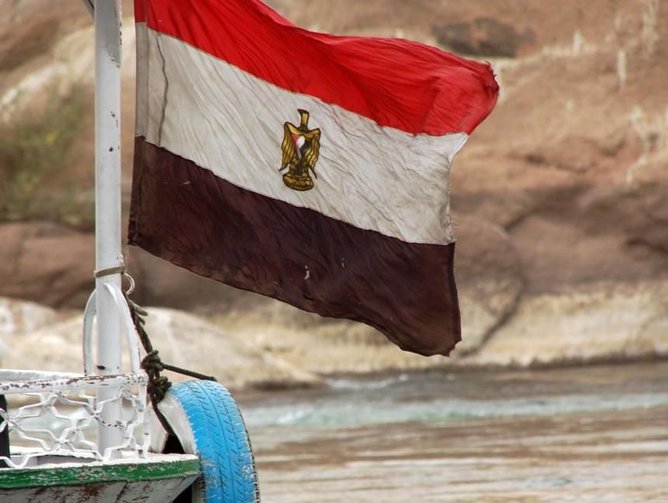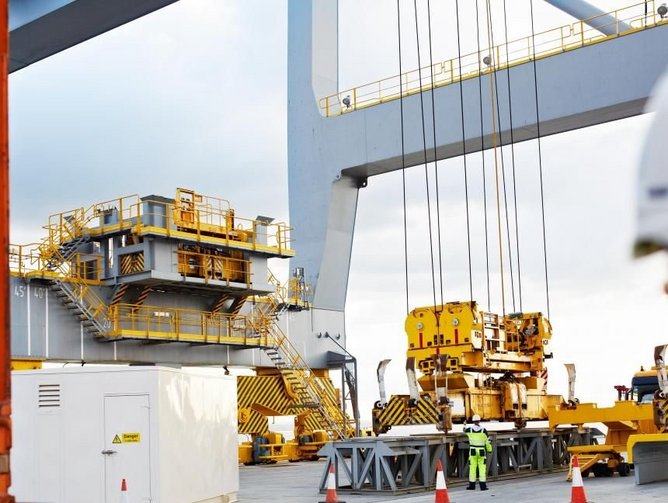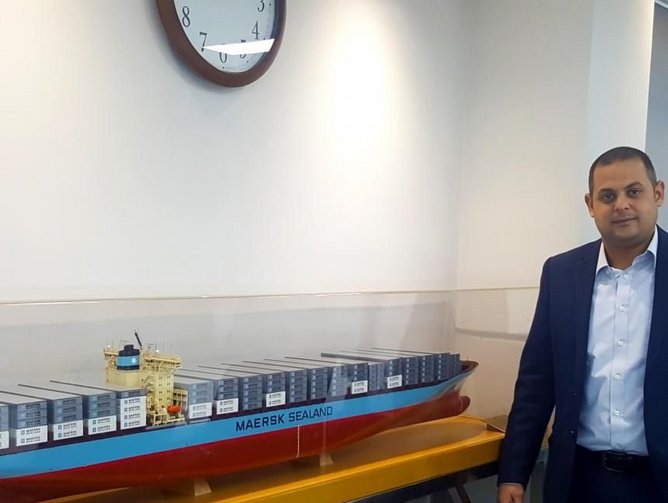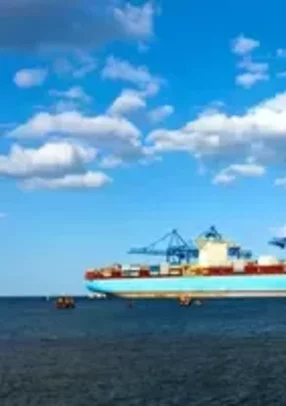Maersk Egypt: Dealing with today’s challenges and preparing for a digitised tomorrow
The Egyptian economy is undergoing a significant transition. The adoption of new reforms has eradicated a number of government subsidies as part of the International Monetary Fund’s (IMF) Extended Fund Facility (EFF), which came into force in November 2016. The EFF arrangement of US$12bn has led to sweeping reforms in Egypt, which have notably resulted in increased foreign investment, reduced government spending and a boosted overall economy, providing a multitude of advantages for its citizens.
However, with decreasing annual core inflation of up to 22%, according to TradingEconomics, such economic reform has significantly impacted the transportation industry, particularly with the volume of imports and exports within the country.
“There has been a big shift in the trade balance between imports and exports,” acknowledges Maersk Line Egypt’s Managing Director Nabil Samy. “Imports were up to 70% of our business, which has now completely changed. It has been quite a change for the whole market and its dynamics.”
According to the Ministry of Trade & Industry, exports rose exponentially in 2017 to $20.4bn, whilst imports fell 14% from the previous year.
A step in the right direction in macro view
The country’s currency devaluation and subsequent aim to tackle soaring interest rates has also impacted Maersk’s competitiveness across the region. Nonetheless, Samy is optimistic about what the year will bring. “Egypt is a country that is advancing and therefore, we are expecting 5% GDP growth for 2018,” he says positively.
“Egypt is quite an important country for the company to be in because of the Suez Canal, as well as it being a major waterway for global trade. That is the intention - to grow more in Egypt, within this area and this coast.”
Internal overhaul
With high turnover rates and a transforming economic climate, Maersk Line Egypt has undergone a significant internal transformation. the company has outsourced most of its transaction-based roles, which previously accounted for up to 60% of its workforce, Instead, has replaced these internal roles with ones which are commercially-focused, in order to attract further talent and stay focused on creating value for its customers.
“Just to give you the scale, we have changed approximately 60 jobs out of 150. It has been quite a turnaround. We've also centralised all the work which was previously undertaken in six offices,” reflects Samy.
The company has also committed significant investment in new digital solutions, in order to place greater emphasis on the customer experience, and on trade.
Maersk Line Egypt has strenuously worked towards centralising its different systems to give the customer one core platform, where they can access all available services. This has enabled it to pre-empt any potential bottlenecks within its customer-facing services before they occur.
“It is one of the business solutions that we came up with to give us a better edge when it comes to the customer experience,” explains Samy. “Another business solution we came up with as a company was an application for our business, which is called C360, which undertakes predictive maintenance and provides a 360-degree view, rather than remaining siloed through our data interchanges.
“We've also just launched a new service just a couple of months ago which is an inland haulage,” he continues. “We aim at delivering a quality service to our customers, in an area where they have been historically underserved”
Supply chain strengths
The use of its electronic data interchange (EDI) has therefore enabled the business to continue on its journey to provide exceptional supply chain data and build positive relationships with customers and suppliers.
“We try to streamline the relationship between our suppliers and us, so that what we offer to our customers becomes one integrated solution and they don't have to see through the different parts of the supply chain,” observes Samy.
“The intention is to try to enhance that. Right now, one of the projects we’re running is that we use off-dock depots (depots which are not ports or terminals, but inland). So, we partner with them and try to bring them up to speed to make sure that there is EDI between their systems and ours.
“The aim is to have big data 24/7 and not depend on finicky email. We present the customer with a one-stop-shop solution for the entire continent which requires us to work very closely with our suppliers and have a real-time data interchange between us.”
Additionally, the company has partnered with IBM to look at the advantages of blockchain technology, which will enable further data sharing and tracking capabilities by allowing suppliers to contract digitally with other carriers, as well as support the development of future products and services.
One-stop shop
Whilst sustainability remains a key topic across the supply chain industry, Samy admits that this remains relatively low profile across Maersk Line Egypt’s operations. However, in order to remain competitive, it continually works to drive industry-leading sustainability programmes in areas such as paper waste.
Providing a one-stop shop within its supply chain solutions, Maersk Line Egypt will continue to leverage customer-centric technologies which no other carrier can deliver across the region, where users can book all services within one transaction.
“Customers don't even have to have a supply chain department, we can take care of that,” concludes Samy. “We’re halfway there with our inland and ocean offering, but we can also give customers the customs house brokerage and key financing in the future, these are still projects to come.
“Shipping is quite a complex industry, but we want booking a container to be as easy as booking a flight or booking a hotel room somewhere, that is the end goal. If we are to reach this, we will be miles ahead of all our competitors.”




